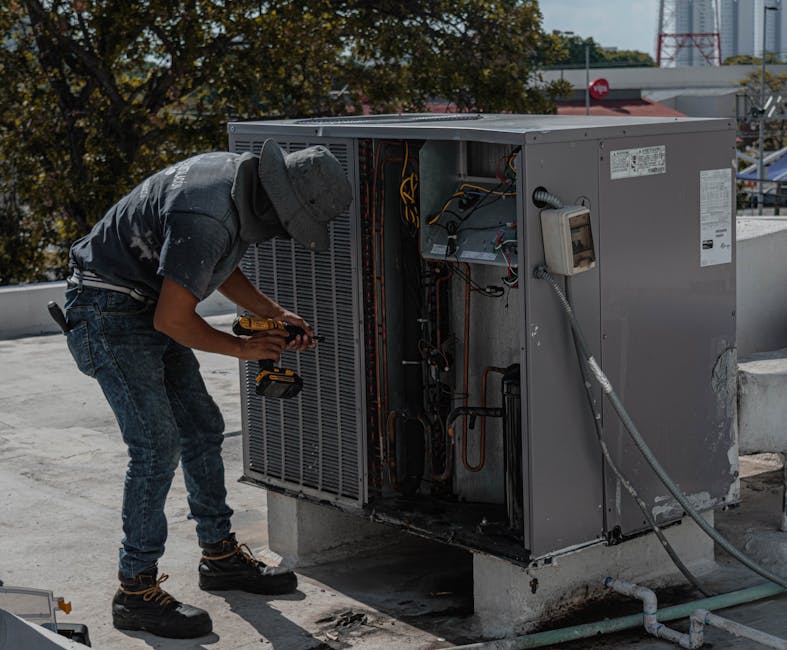 Based on the search results, here are some top-rated plumbing contractors in Glendale:
Based on the search results, here are some top-rated plumbing contractors in Glendale:
**Glendale, AZ:**
1. **Alex & Son Plumbing Services**: A trusted plumbing contractor with experienced plumbers, committed to delivering high-quality service. (Score: 0.9394)
2. **Mike Diamond Services**: Offers emergency plumbing, drain cleaning, and plumbing repairs in Glendale, CA. (Score: 0.8740)
3. **Sav-On Plumbing**: Provides service, repair, and replacement in the Glendale, Arizona area. (Score: 0.8616)
4. **Glendale Plumbing**: Offers fast and reliable service for plumbing issues, from leaky pipes to full wastewater removal systems. (Score: 0.8530)
5. **Bumble Bee Home Services**: A top-rated plumbing and HVAC company in Glendale, AZ. (Score: 0.8519)
**Glendale, NY:**
1. **Pro Plumbing & Heating**: A highly-rated plumbing company with 87 reviews. (Score: 0.7414)
2. **DNS Plumbing & Heating**: Another top-rated plumbing company in Glendale, NY. (Score: 0.7414)
3. **Above & Beyond Plumbing and Heating**: Offers 24/7 emergency plumbing repair and licensed professionals. (Score: 0.6870)
4. **Ranshaw**: Provides reliable plumbing services with 60+ years of experience. (Score: 0.6680)
5. **Kew Forest Plumbing & Heating**: Offers 24/7 plumbing services since 1929. (Score: 0.7887)
Please note that these scores are based on the search results and may not reflect the current ratings. It’s always a good idea to check the current reviews and ratings on multiple sources, such as Yelp or Google, before making a decision. Additionally, it’s recommended to get multiple quotes and compare services before hiring a plumbing contractor.Based on the search results, here are some top-rated plumbing contractors in Glendale:
**Glendale, AZ:**
1. **Alex & Son Plumbing Services**: A trusted plumbing contractor with experienced plumbers, committed to delivering high-quality service. (Score: 0.9394)
2. **Mike Diamond Services**: Offers emergency plumbing, drain cleaning, and plumbing repairs in Glendale, CA. (Score: 0.8740)
3. **Sav-On Plumbing**: Provides service, repair, and replacement in the Glendale, Arizona area. (Score: 0.8616)
4. **Glendale Plumbing**: Offers fast and reliable service for plumbing issues, from leaky pipes to full wastewater removal systems. (Score: 0.8530)
5. **Bumble Bee Home Services**: A top-rated plumbing and HVAC company in Glendale, AZ. (Score: 0.8519)
**Glendale, NY:**
1. **Pro Plumbing & Heating**: A highly-rated plumbing company with 87 reviews. (Score: 0.7414)
2. **DNS Plumbing & Heating**: Another top-rated plumbing company in Glendale, NY. (Score: 0.7414)
3. **Above & Beyond Plumbing and Heating**: Offers 24/7 emergency plumbing repair and licensed professionals. (Score: 0.6870)
4. **Ranshaw**: Provides reliable plumbing services with 60+ years of experience. (Score: 0.6680)
5. **Kew Forest Plumbing & Heating**: Offers 24/7 plumbing services since 1929. (Score: 0.7887)
Please note that these scores are based on the search results and may not reflect the current ratings. It’s always a good idea to check the current reviews and ratings on multiple sources, such as Yelp or Google, before making a decision. Additionally, it’s recommended to get multiple quotes and compare services before hiring a plumbing contractor.Based on the search results, here are some top-rated plumbing contractors in Glendale:
**Glendale, AZ:**
1. **Alex & Son Plumbing Services**: A trusted plumbing contractor with experienced plumbers, committed to delivering high-quality service. (Score: 0.9394)
2. **Mike Diamond Services**: Offers emergency plumbing, drain cleaning, and plumbing repairs in Glendale, CA. (Score: 0.8740)
3. **Sav-On Plumbing**: Provides service, repair, and replacement in the Glendale, Arizona area. (Score: 0.8616)
4. **Glendale Plumbing**: Offers fast and reliable service for plumbing issues, from leaky pipes to full wastewater removal systems. (Score: 0.8530)
5. **Bumble Bee Home Services**: A top-rated plumbing and HVAC company in Glendale, AZ. (Score: 0.8519)
**Glendale, NY:**
1. **Pro Plumbing & Heating**: A highly-rated plumbing company with 87 reviews. (Score: 0.7414)
2. **DNS Plumbing & Heating**: Another top-rated plumbing company in Glendale, NY. (Score: 0.7414)
3. **Above & Beyond Plumbing and Heating**: Offers 24/7 emergency plumbing repair and licensed professionals. (Score: 0.6870)
4. **Ranshaw**: Provides reliable plumbing services with 60+ years of experience. (Score: 0.6680)
5. **Kew Forest Plumbing & Heating**: Offers 24/7 plumbing services since 1929. (Score: 0.7887)
Please note that these scores are based on the search results and may not reflect the current ratings. It’s always a good idea to check the current reviews and ratings on multiple sources, such as Yelp or Google, before making a decision. Additionally, it’s recommended to get multiple quotes and compare services before hiring a plumbing contractor.Based on the search results, here are some top-rated plumbing contractors in Glendale:
**Glendale, AZ:**
1. **Alex & Son Plumbing Services**: A trusted plumbing contractor with experienced plumbers, committed to delivering high-quality service. (Score: 0.9394)
2. **Mike Diamond Services**: Offers emergency plumbing, drain cleaning, and plumbing repairs in Glendale, CA. (Score: 0.8740)
3. **Sav-On Plumbing**: Provides service, repair, and replacement in the Glendale, Arizona area. (Score: 0.8616)
4. **Glendale Plumbing**: Offers fast and reliable service for plumbing issues, from leaky pipes to full wastewater removal systems. (Score: 0.8530)
5. **Bumble Bee Home Services**: A top-rated plumbing and HVAC company in Glendale, AZ. (Score: 0.8519)
**Glendale, NY:**
1. **Pro Plumbing & Heating**: A highly-rated plumbing company with 87 reviews. (Score: 0.7414)
2. **DNS Plumbing & Heating**: Another top-rated plumbing company in Glendale, NY. (Score: 0.7414)
3. **Above & Beyond Plumbing and Heating**: Offers 24/7 emergency plumbing repair and licensed professionals. (Score: 0.6870)
4. **Ranshaw**: Provides reliable plumbing services with 60+ years of experience. (Score: 0.6680)
5. **Kew Forest Plumbing & Heating**: Offers 24/7 plumbing services since 1929. (Score: 0.7887)
Please note that these scores are based on the search results and may not reflect the current ratings. It’s always a good idea to check the current reviews and ratings on multiple sources, such as Yelp or Google, before making a decision. Additionally, it’s recommended to get multiple quotes and compare services before hiring a plumbing contractor.Based on the search results, here are some top-rated plumbing contractors in Glendale:
**Glendale, AZ:**
1. **Alex & Son Plumbing Services**: A trusted plumbing contractor with experienced plumbers, committed to delivering high-quality service. (Score: 0.9394)
2. **Mike Diamond Services**: Offers emergency plumbing, drain cleaning, and plumbing repairs in Glendale, CA. (Score: 0.8740)
3. **Sav-On Plumbing**: Provides service, repair, and replacement in the Glendale, Arizona area. (Score: 0.8616)
4. **Glendale Plumbing**: Offers fast and reliable service for plumbing issues, from leaky pipes to full wastewater removal systems. (Score: 0.8530)
5. **Bumble Bee Home Services**: A top-rated plumbing and HVAC company in Glendale, AZ. (Score: 0.8519)
**Glendale, NY:**
1. **Pro Plumbing & Heating**: A highly-rated plumbing company with 87 reviews. (Score: 0.7414)
2. **DNS Plumbing & Heating**: Another top-rated plumbing company in Glendale, NY. (Score: 0.7414)
3. **Above & Beyond Plumbing and Heating**: Offers 24/7 emergency plumbing repair and licensed professionals. (Score: 0.6870)
4. **Ranshaw**: Provides reliable plumbing services with 60+ years of experience. (Score: 0.6680)
5. **Kew Forest Plumbing & Heating**: Offers 24/7 plumbing services since 1929. (Score: 0.7887)
Please note that these scores are based on the search results and may not reflect the current ratings. It’s always a good idea to check the current reviews and ratings on multiple sources, such as Yelp or Google, before making a decision. Additionally, it’s recommended to get multiple quotes and compare services before hiring a plumbing contractor.Based on the search results, here are some top-rated plumbing contractors in Glendale:
**Glendale, AZ:**
1. **Alex & Son Plumbing Services**: A trusted plumbing contractor with experienced plumbers, committed to delivering high-quality service. (Score: 0.9394)
2. **Mike Diamond Services**: Offers emergency plumbing, drain cleaning, and plumbing repairs in Glendale, CA. (Score: 0.8740)
3. **Sav-On Plumbing**: Provides service, repair, and replacement in the Glendale, Arizona area. (Score: 0.8616)
4. **Glendale Plumbing**: Offers fast and reliable service for plumbing issues, from leaky pipes to full wastewater removal systems. (Score: 0.8530)
5. **Bumble Bee Home Services**: A top-rated plumbing and HVAC company in Glendale, AZ. (Score: 0.8519)
**Glendale, NY:**
1. **Pro Plumbing & Heating**: A highly-rated plumbing company with 87 reviews. (Score: 0.7414)
2. **DNS Plumbing & Heating**: Another top-rated plumbing company in Glendale, NY. (Score: 0.7414)
3. **Above & Beyond Plumbing and Heating**: Offers 24/7 emergency plumbing repair and licensed professionals. (Score: 0.6870)
4. **Ranshaw**: Provides reliable plumbing services with 60+ years of experience. (Score: 0.6680)
5. **Kew Forest Plumbing & Heating**: Offers 24/7 plumbing services since 1929. (Score: 0.7887)
Please note that these scores are based on the search results and may not reflect the current ratings. It’s always a good idea to check the current reviews and ratings on multiple sources, such as Yelp or Google, before making a decision. Additionally, it’s recommended to get multiple quotes and compare services before hiring a plumbing contractor.
5 Key Takeaways on the Road to Dominating
The Best Advice About I’ve Ever Written
Top Factors to Employ a Specialist Pipes Solution
 Choosing an Experienced HVAC Company for Your Needs
Choosing an Experienced HVAC Company for Your Needs The Evolution of Digital Scanning in Philadelphia: A New Era of Innovation
The Evolution of Digital Scanning in Philadelphia: A New Era of Innovation The Art of Measuring High Voltage: A Guide to High Voltage Probes
The Art of Measuring High Voltage: A Guide to High Voltage Probes Understanding the Function of a General Specialist
Understanding the Function of a General Specialist